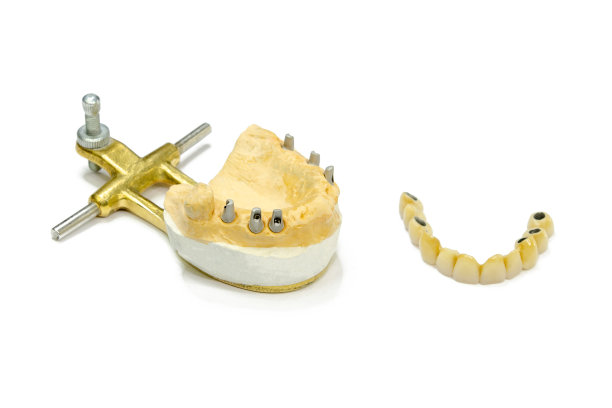Summary: Dental fillings are a common dental procedure to restore decayed or damaged teeth. Before undergoing a filling, its essential to be well-informed. This article outlines critical tips and precautions, including understanding different types of fillings, preparing for the procedure, aftercare tips, and potential complications. Each of these areas provides important insights to help you navigate your dental filling experience with confidence and ease. By following these guidelines, you can ensure a smoother process, leading to better oral health outcomes.
1. Understanding Different Types of Fillings

Before proceeding with a dental filling, it is vital to understand the variety of filling materials available. Options such as amalgam, composite resin, glass ionomer, and gold allow for individual preferences based on factors like the location of the cavity and personal aesthetics. For instance, composite fillings blend with the natural tooth color, making them ideal for visible areas.
Moreover, the durability of each filling type varies. Amalgam fillings are known for their strength and longevity, making them suitable for molars that endure significant chewing pressure. In contrast, composite fillings, while aesthetically pleasing, may wear faster and require more frequent replacements.
Patients must also consider any allergies to materials. Discussing personal medical history with the dentist ensures that the right filling is chosen, minimizing the risk of adverse reactions, which is crucial for a successful procedure.
2. Preparing for Your Dental Filling Appointment
Preparation is key to making your dental filling appointment stress-free. Start by scheduling a consultation with your dentist. This visit should include X-rays to assess the extent of decay and help determine the best filling option. Knowing what to expect eliminates anxiety on the day of the procedure.
Additionally, informing your dentist about any medications you take is crucial for a safe filling. Some medications can affect bleeding and healing, so knowing these details allows your dentist to take necessary precautions. If you are anxious about pain, you may want to inquire about sedation options available for comfort during the filling process.
Prepping for any dietary restrictions following the appointment is also worthwhile. Some fillings require you to avoid certain foods for a few hours post-procedure, so being well-prepared makes your recovery smoother.
3. Aftercare Tips for Dental Fillings
After the dental filling procedure, following proper aftercare is essential to ensure healing and maximize the longevity of your filling. Initially, you may experience sensitivity to hot or cold temperatures. Using desensitizing toothpaste can alleviate this discomfort over time.
Maintaining good oral hygiene practices is vital. Brush and floss gently around the filling to prevent plaque buildup and potential decay. Regular dental check-ups allow your dentist to monitor the fillings condition, ensuring it remains in good shape.
Moreover, taking note of any unusual symptoms is paramount. If you experience excessive pain, swelling, or persistent sensitivity, contact your dentist as these could signal complications requiring prompt attention.
4. Potential Complications and When to Seek Help
Though dental fillings are generally safe and effective, complications can occasionally arise. One common issue is the filling becoming loose or falling out. If this occurs, it is essential to contact your dentist immediately for a replacement. Ignoring this issue can lead to further decay and damage.
In some cases, patients may develop an allergic reaction to the materials used in the filling. Symptoms such as swelling, itching, or a rash near the filling can occur. Identifying these symptoms and notifying your dentist ensures prompt management and resolution of the issue.
Finally, some patients may experience persistent pain, which might indicate an underlying issue like an infected tooth. Its imperative to address this promptly, as early intervention can prevent more severe complications and preserve your dental health.
Summary:
In summary, understanding the types of fillings, preparing adequately for the procedure, following post-care instructions, and being aware of potential complications are all vital for successful dental filling experiences. By taking these essential tips and precautions into account, patients can significantly enhance their dental health outcomes while ensuring a smooth and comfortable process.
This article is compiled by Vickong Dental and the content is for reference only.
Vickong Dental
Vickong Dental is a large medical group established in Hong Kong in 2008 by professors from well-known medical universities in Guangdong and Hong Kong, as well as medical doctors from key national '985' universities (including Master's supervisors and senior professors). The chain of branches brings together expert dentists with PhDs and Master's degrees from Hong Kong and Mainland China, committed to providing high-quality dental treatment.
"Vickong Dental Practices the University Motto of 'Healing and Serving Society,' with a Stable Operation for Sixteen Years. It Has Been honored with Hong Kong Enterprise Leaders's Choice,' and is a Global Trusted Implant Center for the Nobel Implant System. Recommended by Hong Kong Metro Broadcast and Guangdong Television, it Serves Customers from Over Thirty Countries and Regions, Gaining the Trust and Favor of Citizens from the Guangdong-Hong Kong-Macau Greater Bay Area and Surrounding Cities.

Thousands of customers' unanimous praise
The most recognized and highly recommended dental service by customers in the Guangdong-Hong Kong-Macau Greater Bay Area
We Ensure You Receive Detailed Care and Attention Here
Hong Kong standards, Shenzhen prices, Your Trusted English-speaking dentists

Vickong Dental Medical-Grade Instrument Disinfection Process
Vickong Dental Medical-Grade Instrument Disinfection Process

Vickong Dental Chain: A Warm and Comfortable Environment for Treatment






Appointment Hours

Q&A
Why choose Vickong Dental?
Vickong Dental practices the university motto 「Medicine to Benefit Society」, with each branch bringing together highly qualified dentists with doctoral and master’s degrees from Hong Kong and the Mainland, and has maintained seventeen years of steady operation。Recipient of 「2024 Hong Kong Enterprise Leaders Brand」, 「2025 Hong Kong Enterprise Leaders Brand」, a Nobel Biocare Global Trusted Implant Center, and a brand recommended by Metro Radio Hong Kong and Guangdong TV。
To date, we have served customers from more than thirty countries and regions,earning exceptionally high word-of-mouth recognition and trusted recommendations from residents across the Guangdong-Hong Kong-Macao Greater Bay Area and surrounding cities
We have eight major branches in Zhuhai、Shenzhen,and a consultation and service assurance center in Hong Kong,so you can book a free consultation at any time for any questions,which is very reassuring.
If I do not accept the quotation after the CT scan, will I be charged??
No! As long as the actual treatment has not started, you will not be charged any fees.
Will there be any additional charges during the treatment process?
No, there won’t be any additional charges. Before treatment begins, we will clearly explain the treatment plan and its corresponding fees. Only after the patient agrees and signs the consent form will we proceed with the dental service.
Can I pay in Hong Kong dollars?
Yes. Vickong Dental accepts payment in Hong Kong dollars. The amount will be converted based on the exchange rate of the day, and the applicable rate will be clearly communicated to you in advance.
Can I reschedule my appointment at any time?
Yes. Please contact us via **WeChat** or **WhatsApp** as early as possible, providing your original appointment time and details, along with your preferred new date and time slot for rescheduling.













